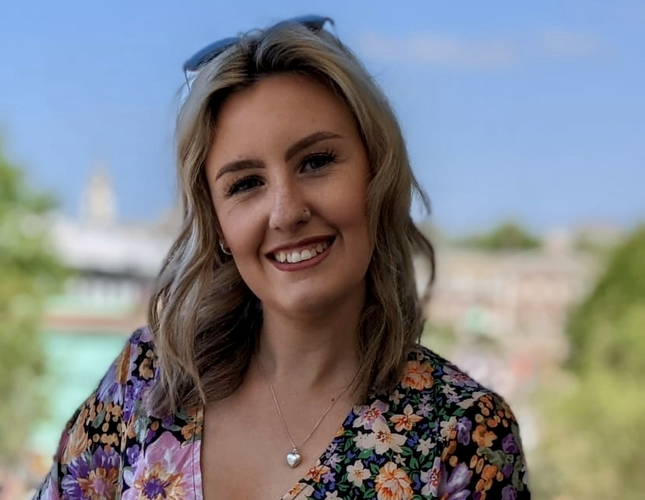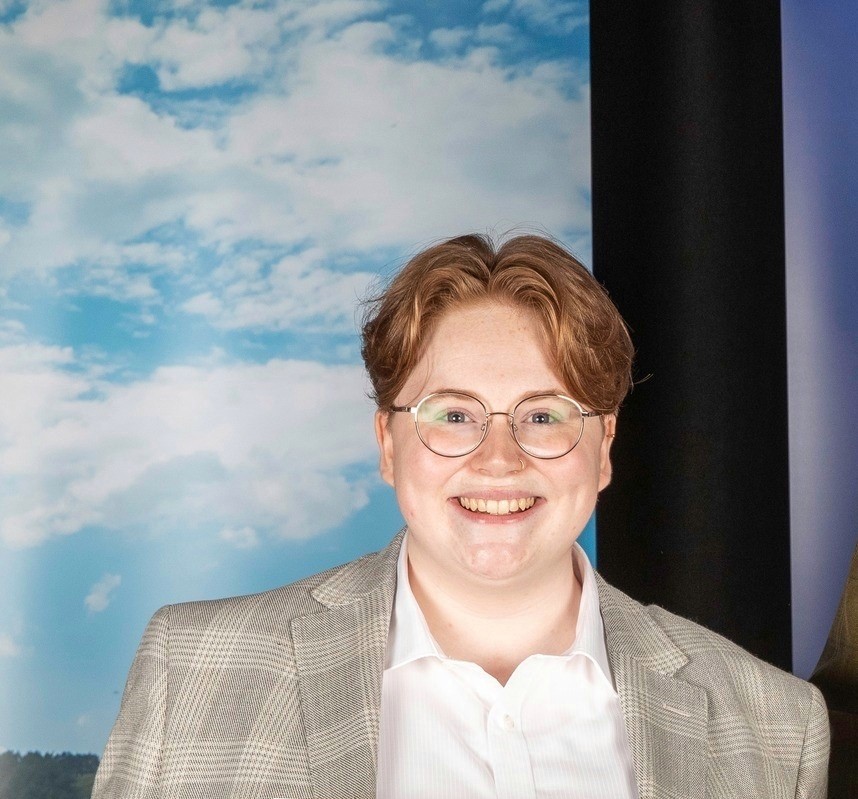

Simon Maddock has been the Clinical Director at The Cat and Rabbit Care Clinic in Northampton for 23 years! It was only within the last 4 years that he decided to expand and take on new graduates. In this Q&A session, we learn about his experience within the Animal Care industry as well as the importance of apprenticeships.
What is your name, and job title?
I am Simon Maddock, the Clinical Director here at The Cat and Rabbit Care Clinic.
Do you mentor any of the apprentices?
Yes, I do, and I have been mentoring graduates for about three years now.
How do you find mentoring?
Great, because for a long time, I worked on my own and a little with my wife, so we have been with The Cat and Rabbit Care Clinic for 23 years now. It was about three or four years ago that we decided to expand and take on new graduates.
What makes a good mentor?
I think a lot of it for us is the shadowing aspect, whether it's me or my mentor consulting. We operate together so that there is always someone else present to keep an eye on and help the mentor. We have a good work ethic, great communication, and a strong relationship with our clients. You must listen to your student's concerns and go through them to find a resolution.
All the mentoring we do provides an informal approach, and our focus is more on coaching whereas in the past especially at university it’s all graded and assessed. However, the way they are now doing the post-graduate Veterinary education has a lot more academic support and no scoring. Yet, they each have a bar for vetting they must do, and this moves along as they work with different species and build experiences. The goal for them within a year is to be at the point where they can work independently.
The apprenticeship route is a lot more organic as it is just engaging them in what we do all the time, but knowing there is someone there who can step in if need be.
The process we use for shadowing is they watch what we do, get a feel of consultations, see surgeries, and then eventually go on to work independently.
Do you think the apprenticeship route is the best way for those coming from school?
For nursing, it works very well and this fits into two categories. The first is theoretical degree-based nursing or you are at college working as a Veterinary Nurse. With that, you can go from A-Levels to university and complete a nursing degree. On the other hand, you can complete a classic apprenticeship where you have a day's release to college and for the rest of the time.
Though the Veterinary Surgeon side is very fixed, you need a Veterinary degree which must be through A-Levels, and then at the university, there is no apprenticeship side.
Do you think there needs to be an improvement in school settings to encourage more to the industry?
Possibly, I think from the vet’s point of view it is difficult because the degree is very popular. They need an increase in places offered as this is the reason why we are short of vets. There are not enough universities places and not able to retain enough young vets once qualified.
We are very lucky that our degree leads to a direct job!
What methods do you use when dealing with difficult situations?
We must be available and try to build up a repour from the beginning as this helps the students to know we are here to help. We are open and have no judgment at all as there will be times when mistakes happen. We hope our students will be confident and comfortable enough to come to us. Most of our role is to always support them and sometimes it can help to look at different ways and perspectives for effective solutions.
What has made you stay in this industry?
I enjoy the job thoroughly even though it can be stressful to start with! When I started my journey in the animal industry, we had no formal support besides the more experienced vets and practice partners. This has improved a lot now, I was lucky I got through my first job where it was very busy, and we did out-of-hours work with a whole range of animals. My wife is also a vet, so I think that the understanding and support we give each other has helped quite a lot.
Once you start to build up experience and get past the stressful side it does get easier! I enjoy the work, I love the variation, and each day is different. We get to be dentists, surgeons, medics, and do a whole range and there are not many jobs that will allow you to do that.
In this Q&A session, we explore Sarah’s role and journey in the field of recruitment and Horticulture.
What does the business do?
I have been working at MorePeople Recruitment for nearly 5 years! I feel like every day is a learning day as we specialise in recruitment for food, fresh produce, horticulture, and agricultural industries and these industries are continually evolving. For the Young People in Horticulture Association (YPHA), I have been sitting on the committee since May 2022, committed to uniting under 35’s in horticulture.
What courses or qualifications have you completed?
At MorePeople Recruitment, I’ve completed a National Vocational Qualification (NVQ) Level 3 in Recruitment, studied for my Royal Horticulture Society Level 2, and a Chartered Management Institute Leadership qualification. For me, the leadership qualification was fantastic. I was able to build a really strong base understanding and foundation to work on, as well as areas that I needed to develop.
With the Young People in Horticulture Association (YPHA), working on this committee has given me so many new networking and career skills I would have never gotten the chance to do otherwise!
The main thing I would say about most qualifications is that they build knowledge and some great theory but putting it into practice is always different.
What do you do in your job each day?
My day-to-day job at MorePeople is so varied, and I could probably bore someone all day with the ins and outs! Essentially, I help people find their next job, or help businesses find that person they need. I specialise in Horticultural and Agricultural recruitment, so I focus on lots of different roles. I also manage a team of 3 and help them develop their knowledge and skills.
At the Young People in Horticulture Association (YPHA), as a volunteer, we do what we can when we can. My main role is to represent us at various events, manage the website, and ensure the job page is up to date so people have another resource to use.
I hope that I change people's lives and help them advance their careers!
What skills do you use in your job?
I think for both roles, the main skills I use are people skills and communication. I’ve learned so much about reading people’s body language, changing your tone depending on the situation, empathy vs sympathy, and more.
Organisational skills are also so important!
What’s the best part of your job?
This is going to sound cheesy, but the best part of my job is the industries I work in. I didn’t know how vast the industry was, and I wouldn’t be part of the Young People in Horticulture Association (YPHA) if it wasn’t for MorePeople Recruitment.
I’m so interested in all parts of Horticulture and Agriculture, and the best part of the job is that I get to speak to so many people, that I never stop learning!
Are there any challenges in your job?
At the Young People in Horticulture Association (YPHA), one of the biggest challenges is time. We’re all volunteers with full-time jobs, so trying to fit in everything we want to achieve is a challenge.
With MorePeople, the main challenge is trying to ensure that everyone you work with in the end is happy with the outcome.
Is technology important to your role?
Technology is so important for both of my roles as so much of my role at MorePeople is done over the phone, and via email as we recruit across the UK.
At the Young People in Horticulture Association (YPHA), our members stretch from the top of Scotland to Cornwall, so having a communication platform for our group is key. We also host seminars over teams to keep the networking and education piece going, and we couldn’t do this without technology!
If you had to convince someone else of the benefits of a career in your line of work, what would you say to them?
I would highlight how interesting and varied my role is! While the day-to-day and my targets are the same, I deal with so many different people at any one time. I’m always learning, and I love it! It’s all about putting yourself out of your comfort zone and thinking of long-term goals.
We have learned from Sarah, that you can have multiple career goals! If you have a love of plants, growing fruit and vegetables as well as a passion for working outdoors, then the world of Horticulture is the perfect career choice for you!


Minnie Cooke is currently completing a scholarship placement. Throughout her story, we learn about a wonderful voyage of passion for changing career paths as well as gaining knowledge about the diverse routes within agriculture.
Inspiration to pursue this route came after changing careers from Veterinary Physiotherapy during her second year at Harper Adams to agriculture. “I am from Ireland, and we don’t have our farm, but the course lead gave me the option to access farms. He said if I were serious about this, they would sponsor me to improve my agricultural skills, which I did through Lantra.”
Currently working in a rural health and safety consultancy to farms, and what needs to be actioned such as audits and risk assessments. “Mainly based in agriculture, but involvement with all agri-businesses and estates.” Minnie’s role still varies and can consist of a lot of software testing and making designs for adverts and campaigns. “I am known as the IT person! I enjoy going to events and being able to engage with people, especially to discuss health and safety.”
Within the world of Health and Safety, Minnie’s role is one where being computer-literate and adaptable in learning systems is a must. “If you are looking to start working in agriculture, you can start by getting training, with your tickets like telehandler. If you are more passionate, go and investigate academic study!” There are many interesting qualifications you can do, just make time, and be determined enough to pursue a rewarding path.
“Farming will be relying more on technology going forward”, Minnie explained in agriculture, you can notice the way government and legislation push farming to become regenerative. Within her career in health and safety, some things can be done, for example, trying to become paperless.
We notice, feeding the planet isn’t a simple ask, it’s complex and multi-dimensional. However, in your ‘green bubble,’ you have a personal relationship with nature through access to light and fresh air. “Agriculture is such a massive ecosystem that there is a spot for every type of worker in it! We have endless and diverse opportunities with so many different pathways. We will always need to feed people in different ways.”
As her pathway has already been eventful from moving to England from Northern Ireland, Minnie hopes to remain open-minded. “I am always hesitant to make plans because I did change my career path, agriculture is such an open field and there are so many opportunities.”
Things may go wrong but at the end of the day, you are changing the world. “All the farm work I have done, I loved it, it feels like you are contributing to the world and realising I am feeding people! Being on the land and connecting to provide food to people has been an amazing experience.”
It doesn’t take something massive to make a change, you need that drive and passion to want to make a difference. Minnie explained, “It is rewarding, and you get to be out there amongst beautiful land, it is a wholesome world!” You don’t have to come from a farming background or know everything, in any industry, there will always be people who can help you.
“I always thought you could never enter the industry if you don’t have a farm, but I was wrong!” There is a huge need for people to get into farming, and agriculture welcomes ALL to join.
Kara is primarily a chainsaw operator and runs her own business. She is passionate about getting other women and diverse genders into the industry. Barbara combines her interest in conservation with her love of horses and works with many foresters to extract timber from woodlands.